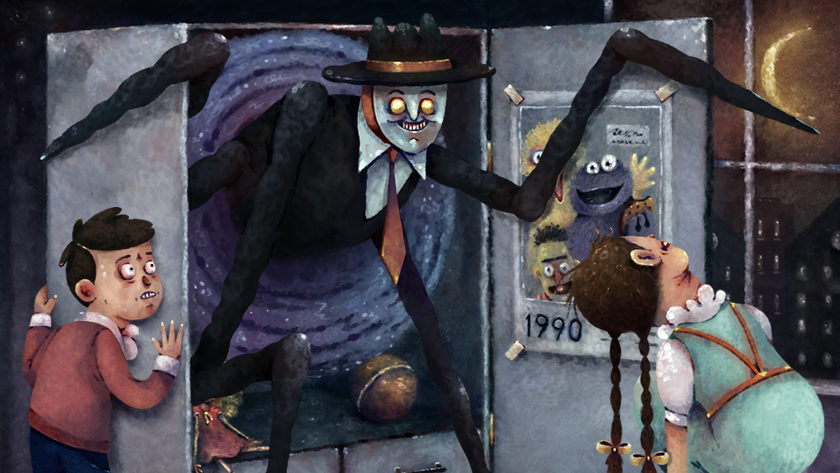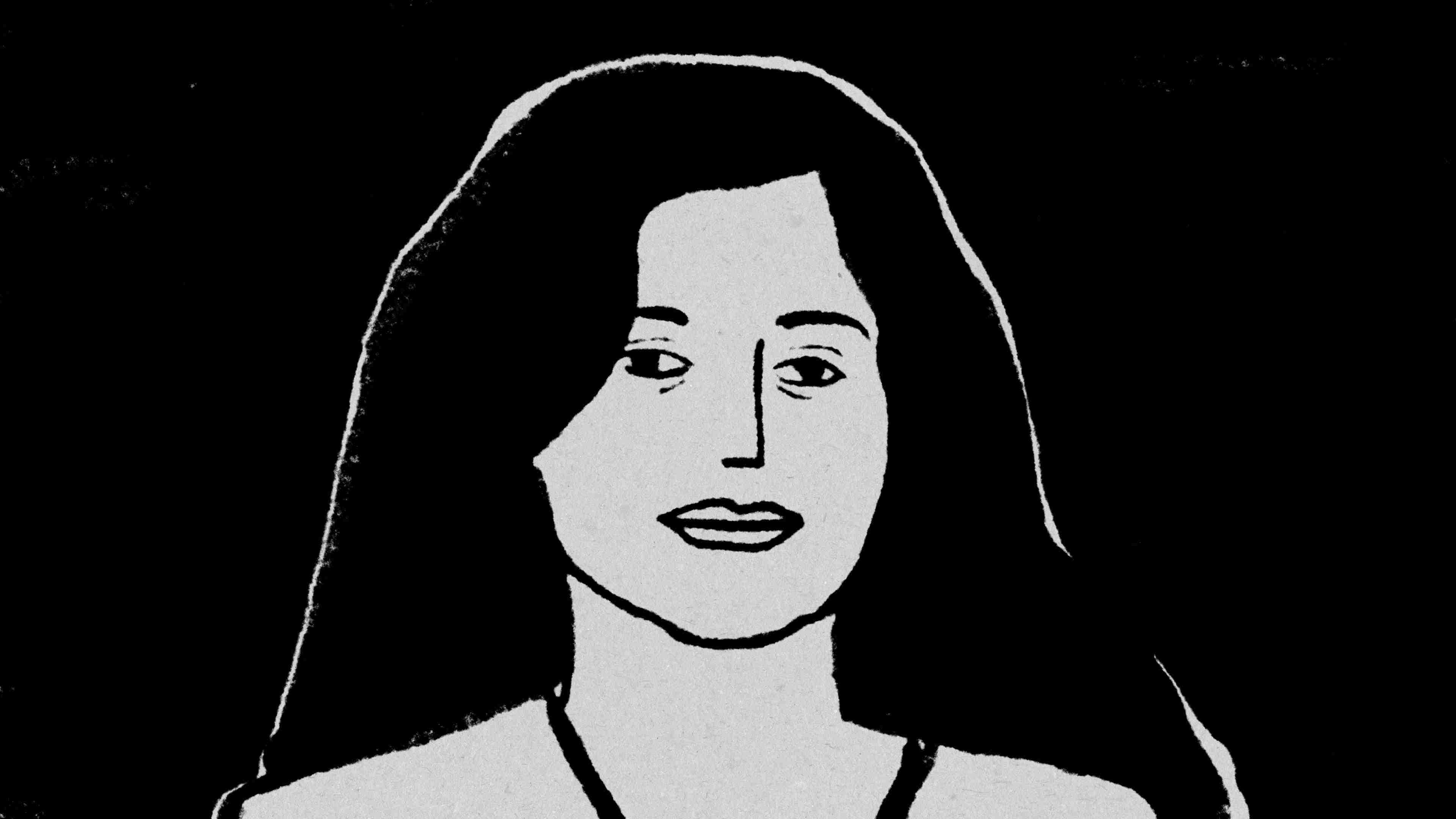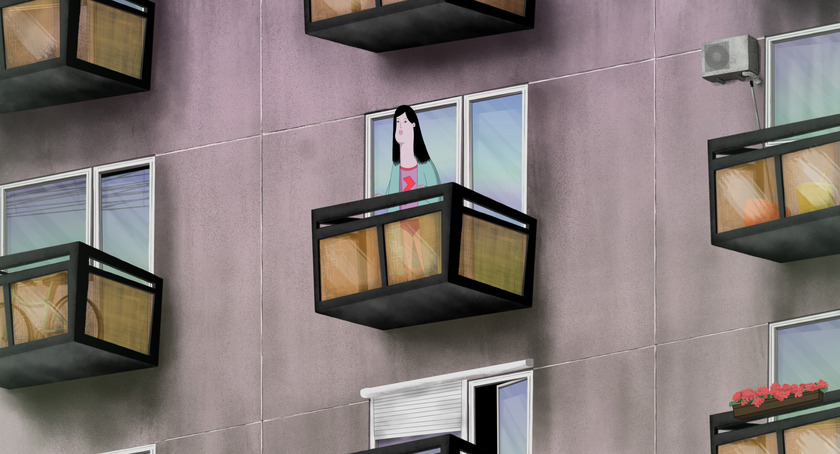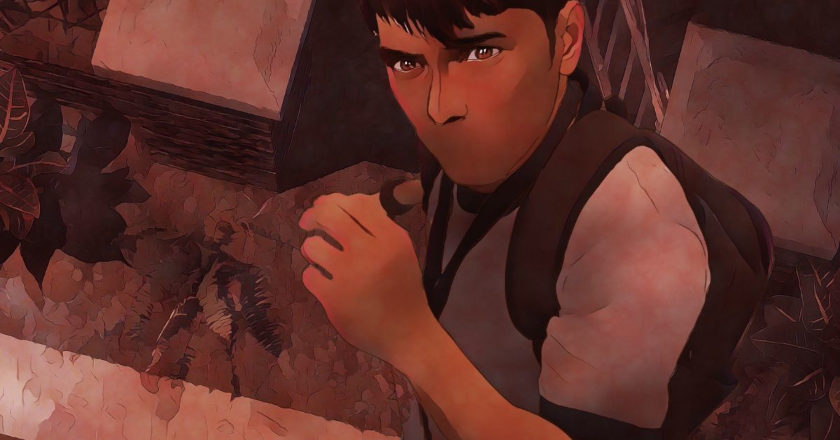'Aikane' Short Animation by Dan Sousa, Dean Hamer & Joe Wilson: Queer Indigenous Feeling
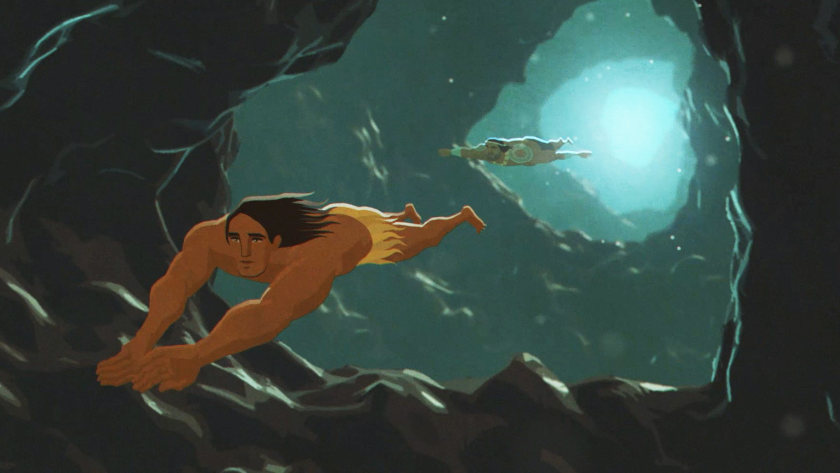
The creative quartet of Dean Hamer, Joe Wilson, Dan Sousa, and Hinaleimoana Wong-Kalu create films that consistently tell an indigenous experience in precise animated terms. In their previous effort, 'Kapaemahu', the Hawaiian indigenous past was revealed in the commercialized present (more about the film). In the new short animation, the queer-themed 'Aikāne' (the term meaning intimate friend of the same sex) a queer romance is developed between two men in the very distant past, full of colonial implications.
A valiant island warrior, wounded in battle against foreign invaders, falls into a mysterious underwater world. When the octopus who rescued him transforms into a handsome young man, they become aikāne, intimate friends bound by love and trust, and an epic adventure begins - Film Synopsis
The film has now become Oscar-qualified, after it won the Animated Shorts Jury Award, at the 2023 New Hampshire Film Festival. Other notable festival selections: Frameline, Chicago International Children's Film Festival, Hawai'i International Film Festival, Adelaide Film Festival, Thessaloniki Film Festival, Outfest LA, DC Asian Pacific American Film Festival - Best Narrative winner).
We talked to the 'Aikāne' team: Dean Hamer (director and writer), Joe Wilson (director), Daniel Sousa (director and animator), and Hinaleimoana Wong-Kalu (producer). They all had to say some interesting things.
ZF: Why the need to go back in time to tell this story? Is it the need to say something that might otherwise be forgotten or the need to move a little away from our current post-pandemic world and take some stock from another era?
DH: The present is not a good time to set a queer love story. As students and teachers across the country are being told to not say gay, books are banned from libraries, parents are being criminalized for providing their kids with gender-affirming health care, and people like me and my husband and co-director Joe Wilson are being labeled groomers and pedophiles, it seems like we are in a period of moving backward rather than forwards.
Fortunately, this has not always been the case, and the past offers a rich panoply of societies and cultures where same-sex love was not only spoken but praised. The homoerotic writings of ancient Greece, the cut-sleeve stories of imperial China, the Indian temple paintings of womanly embraces, and the love poems of medieval Ireland are but a few examples. Because we live in Hawaii and have been working on films about Pacific Islander lives and voices for many years, that’s where we first turned for inspiration – but it wasn’t the only place. We drew from our histories and experiences too.
ZF: 'Aikāne' means intimate friend of the same sex, not just a same-sex partner. What is the differentiation here and why is this title in the film?
JW: Translations of words and cultural concepts from one language to another are never ideal. And while same-gender-loving folks have existed across place and time, it seems like only a few societies have named us in a way that denotes dignity and respect, one of them being Hawaiʻi, where we’ve become immersed in community efforts to help restore these kinds of hidden histories. In Hawaiian culture, Aikāne were not just same-sex lovers, they were friends, trusted confidants, equal partners, and sometimes even co-rulers of the land.
We considered many other possible titles, but the closer we got to the release date, all of us involved in the project, especially Hina, knew that Aikāne made the most sense because it reflected the deep relationship between the protagonists. There was just no need to conjure up an English equivalent because thlly is none.
Watch the 'Aikane' trailer:
ZF: The two characters are designed differently; the first has more 'manly' characteristics, and the second with more 'feminine' ones. Was this intentional?
JW: In a way, this speaks to traditional gender stereotypes and viewers’ preconceived ideas as much as it does to our intentions. Like most cisgender men, we were raised to live by rigid rules of what it means to be a man, to be stereotypically masculine. But, as guys who are attracted to and fall in love with other guys, those rules don’t necessarily apply to us, which is liberating. It allows us the freedom to be whatever we want or have the courage, to be, and to defy societal expectations. We wanted to play with that in the film.
That’s also why shapeshifting is an element – the idea of a character being, or becoming, something or someone else to survive in an environment where you feel like you don’t belong. Most queer folks know exactly what this is like, subconsciously, to constantly have to shapeshift to be safe or accepted at home, at school, in the workplace, or out in their community. The twist in the film is that these shape-shifting, same-gender-loving characters get a happy ending, something that is still too rare for queer people, both on and off-screen. We hope Aikāne can be a small part of changing that narrative.
ZF: What were the challenges of the animation process (2D/3D)? Here we have a lot of underwater scenes and a lot of battle scenes at the same time
DS: The challenges were also the most enjoyable parts of the process I always try to push areas of filmmaking that I may not be familiar with, or aesthetics that are counter to what I have explored in the past. And this film definitely fits the bill! Designing colorful, light-drenched environments, swatch-buckling action set-pieces, and underwater luminous spaces were all new areas of exploration that I had never tried.
Placing the 2D characters within 3D environments was fairly straightforward and not terribly challenging. But making sure the marriage was convincing and didn't distract from the storytelling required a lot of nuance.
ZF: How did you envisage the visual world of 'Aikāne'? It is very varied and full of light. I suppose you have Hawaii references, but how did you mix those in the film?
DS: We wanted the characters and environments to feel genuine, but not specific to a particular group of people or historical events. The story needed to live on its own, outside of time and space. So we pulled mostly from Hawaiian references, but also Celtic, and invented the rest. Additionally, the film required a lot of research on underwater photography (and swimming), period costumes, ships, landscapes, and color palettes. Juggling all the influences and finding the perfect combination that felt natural and uncompromising was certainly challenging, but I think we found a good balance.

ZF: How was the script drafted? Did you have a single story serving as reference, a collection of fables or did you come up with something completely original?
DH: Joe and I are fortunate to live close to the ocean and swim or surf nearly every day of the year. I especially love to take long dives under the surface; it is like entering a new world, silent and slow-moving, far from the noise and chaos above.
The inspiration for 'Aikāne' came in a flash during one of those underwater sessions. I wanted to share the sense of connection and dependence that happens when two people enter that silent underwater universe, and I wanted to do it through a romance. It was only later that I began to think about how elements from the many different legends and myths of same-sex love that I had read might be incorporated into the narrative arc.
ZF: Aikāne is an epic adventure in 14 minutes. Did you have to change a lot during the process to make all elements of your story fit? Any particular scene that was added at the last moment?
DH: This was my first try at fiction. Having spent my entire life writing non-fiction papers, essays, books, and documentaries, I thought it would be easy. I was so wrong! The first draft was about 20 pages long and included dozens of characters including a healer, a king, a jealous woman, and angry villagers. As we talked with our animator Daniel Sousa and story consultant Will Csaklos about what each character contributed to the dramatic arc, this was slowly stripped down to just the two protagonists, and the number of scenes was reduced by half.
What we ended with was a classic love story with a beginning, middle, and end. I know thatʻs considered a bit old-fashioned and corny, but in the world of queer fi,lms itly a novelty.
ZF: ʻAikāneʻ and 'Kapaemahu' are two different films, but they both tell of the need to have empathy and learn. Can you pinpoint the differences between the two films?
HWK: In the Western view, the difference between these films is that Kapaemahu focuses on gender fluidity whereas Aikāne deals with sexual orientation. But in our Hawaiian culture, people are judged not by the pronoun they use or the people they love but by their kuleana, or responsibility. The kuleana of māhū, people like me of dual male and female spirit is to act as caretakers, healers, and teachers of ancient traditions. For aikāne, it is to support, nurture, and aloha one another. Seen through this Polynesian lens, Kapaemahu and Aikāne represent two facets of a culture where all people are valued and respected.
ZF: What is the festival experience from showing 'Aikāne', and most importantly, the audience reaction? The film has been shown internationally, as well as in Hawaii, so you can have a measure of the different audience reactions.
JW: The festival experience has been varied, which has made it interesting and surprising. Some festivals have put it in programs for mature audiences only, while others have screened in children’s programs. It has been popular in queer, native, ethnographic, and even horror and fantasy festivals, but not so much in traditional animation festivals, which may say more about the industry’s lingering discomfort with LGBTQ storylines than it does about the film. We’re glad that Zippy Frames is helping to break that reluctance with its Queer Animation section.
As for audience reactions, it has been exactly what we hoped for, with younger and older viewers alike sharing emotional responses to watching a film whose characters are powerful and heroic not despite who they love but because of it. Our favorite comment, overheard in a theater hallway, was “Did you see the Disney film about the merman?”
ZF: Aikāne' and 'Kapaemahu' both describe the indigenous Hawaiʻi experience. Do you plan to continue in that vein in the future?
DH: Given how much we love Hawaiʻi, and what fun it is to collaborate with Daniel, it would be difficult not to, and I am delighted to announce that Iʻll be playing a role in an exciting new film about the Kingdom of Hawaiʻi called The Queens Flowers, directed by Ciara Lacy and produced by Concepcion Saucedo.
Ultimately, though, we are as interested in impact as we are in the art of filmmaking, which in the case of Kapaemahu led to a public television documentary, a children's book, a major museum exhibition, and a contextualizing signage addition to the physical monument in Waikiki. Aikāne will find its permanent place as part of a new, foundation-funded public memory project on The Queer Histories of Hawaiʻi that we hope will open even more opportunities to combine creative storytelling with action for change.
\

Film Review (Vassilis Kroustallis):
In a world in which stories of coming out have become more abundant on the big and small screen, ' Aikāne' does something different. It starts from the established point of a queer love (which dares speaks its name) and moves beyond the erotic aspect to encompass a partnership ready to stand the test of danger -and extraneous social interference. Even if fictional, 'Aikāne' is deeply entrenched in its indigenous Hawaiian culture; its visual palette is strong and tender at the same time, just like its two main characters. By adopting the epic hero's journey (here in partnership), the film succeeds in showing that queer love and partnership can be a reality, not a pipe dream -despite all dangers and inhuman odds. Both characters are complimentarily defined, and the scene transition follows closely (and interestingly) the mishaps from the small to the most dangerous. The film is empathetic and mysterious at the same time, as if advising that a two-way intimate partnership needs to keep its secrets. An engaging film ready to be explored, which makes us ponder how the obvious queer love still needs to be stated as such.
CREDITS:
Aikane (2023)
Directed by Daniel Sousa, Dean Hamer, Joe Wilson | Producer Hinaleimoana Wong-Kalu | Design and Animation Daniel Sousa. Sound and Music Dan Golden | Executive Producers Judith Light, Daniel Karslake




